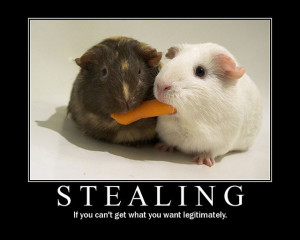
This won’t take a minute… CC image “The Mechanic…” courtesy of Kool Kats Photography on Flickr. Some rights reserved.
From the back, all I could see of her was a wild head of long, grayish-white curls.
“He died there, you know? So they didn’t want to treat him,” she was saying. “They were worried.”
Sitting in my chair further back in the room, I frowned. What?
The phone started ringing, and the mechanic behind the desk took a moment to put the call on hold. The woman barely let this slow her rate of conversation. “I can’t blame them,” she continued. “They would be after what happened last time.”
I was confused. A moment ago, they’d been talking about a $750 bill. Now someone was dead. Or he wasn’t? He was dead in the past… The verb tenses threw me.
“I’ve never been a religious person,” the woman said. “I didn’t know how to pray or anything. Never. But that’s how I learned that I had a gift. It was the accident that did it.”
I tried sneaking a glance at her out of the corner of my eye. Not for one moment did I want to risk being pulled into her conversational orbit. Nonetheless, my curiosity got the better of me. I might end up with a head of hair like that as I got older, if I didn’t cut it short. The woman was small and fine-boned, wearing a narrow, charcoal-gray coat. She kept her back to me, all her attention focused on the mechanic, who probably had been expecting the discussion to take a different tack.
I had breezed in a few minutes earlier, ready to pick up my car after an oil change. My transaction should have taken no longer than five minutes, but I had to wait my turn, since they were taking care of another customer when I arrived. I stifled my irritation. I too appreciated when the shop took time to explain a $750 bill to me.
Ever been there?
A perfect stranger feels the need to share, well, everything. At the time, this is less than ideal. However, if you’re a stuck creative, there are fringe benefits.
“I told him, you know, they’re concerned about your heart,” the woman was saying. “After all, you’d been dead for forty minutes. They had asked him to make a follow-up appointment to get his heart checked out,” she confided. “He’d never done that. I told him they need to put you under anesthesia for your tooth appointment, and that depresses your heart. You never got the tests. They’re worried you’re going to die again.”
By sheer willpower, I refused to meet the mechanic’s eye while this monologue unfolded. My ears, on the other hand, grew like Pinocchio’s nose. Now she was talking about the time she broke her neck… or was it nearly busted her artery?… they thought she wouldn’t live… or she’d be brain damaged. “And that’s how I learned I had the power of prayer,” she said.
The phone started ringing again. “Excuse me,” said the mechanic.
“Sure,” she said. He put two more calls on hold.
The woman wasn’t done.
“I was praying for him, praying for him, and finally I said, you know what? Just give this man a young man’s heart. That’s it. That’s all I could do.”
Another customer emerged from the back of the shop, exchanged greetings with the mechanic, and offered the woman a few chocolates from the bowl on the desk. I wondered whether he was her husband, but they seemed to be there on separate errands. I was trying to place pronouns… was she praying for the same friend who died? Was that before he died, or after?
“They made him take all these tests,” she continued. The mechanic, I could see in my peripheral vision, was leaning forward with his elbows on his knees. “They made him run, they hooked him up to all these machines, they kept on running tests over and over. You know? They couldn’t figure it out. Finally they had a specialist come in and tell him, ‘Sir, you have the heart of a young man’! That’s how I found out I had a gift.”
The woman’s thematic and tense switching was making me dizzy. I wanted her to keep talking, so I could figure out what she was talking about, while at the same time, I wanted her to wrap up, so I could get home. My fingers started to itch for a pen.
Life hands us people and situations like this all time. We’re actually on the way to do something else, or we want to talk to someone else, or we want an experience to end so that we can get on with our original plans. How unlucky, if we stay stuck in this mindset and let pig-headedness stomp all over our creativity. There are a million million different ways we can use our life experiences, ways our experiences can shape our stories, our visions, our music, our dance. Every creative act comes from somewhere, and sometimes, if we are stubborn, the universe needs to hold us hostage to get our attention. As with me at the mechanic’s shop.
Recognize opportunity
Sometimes, opportunity has a secret knock. The knock can be annoying. It’s interrupting us. But if we start paying attention, some of those knocks like to repeat themselves, like Morse code. They have meaning.
The ringing began again. “I’m sure you need to get that,” the other customer said, pointing to the phone.
The mechanic leaned back in gratitude to pick up the receiver. Meanwhile the woman turned to the other customer and started telling him about her son who rides BMX. He had called her up before doing a trick on a thirty-foot vertical ramp, to tell her what kind of injuries he could get from the jump. At this point, I was sure of only one thing: I wanted a tape recorder in my hand.
I knew I was losing glorious detail every moment I failed to capture what was happening around me.
Last year, I attended a meeting in which the keynote speaker told us, “I’m a professional speaker. I never have a bad day. I only have new material.”
I leaned over to my friend who sat next to me and whispered, “That works for writers, too.”
Even at the mechanic’s shop.
Recognize opportunity. It’ll feed your story or project idea like a king if you let it.
== == ==
What is the most unlikely place you’ve ever picked up inspiration?





